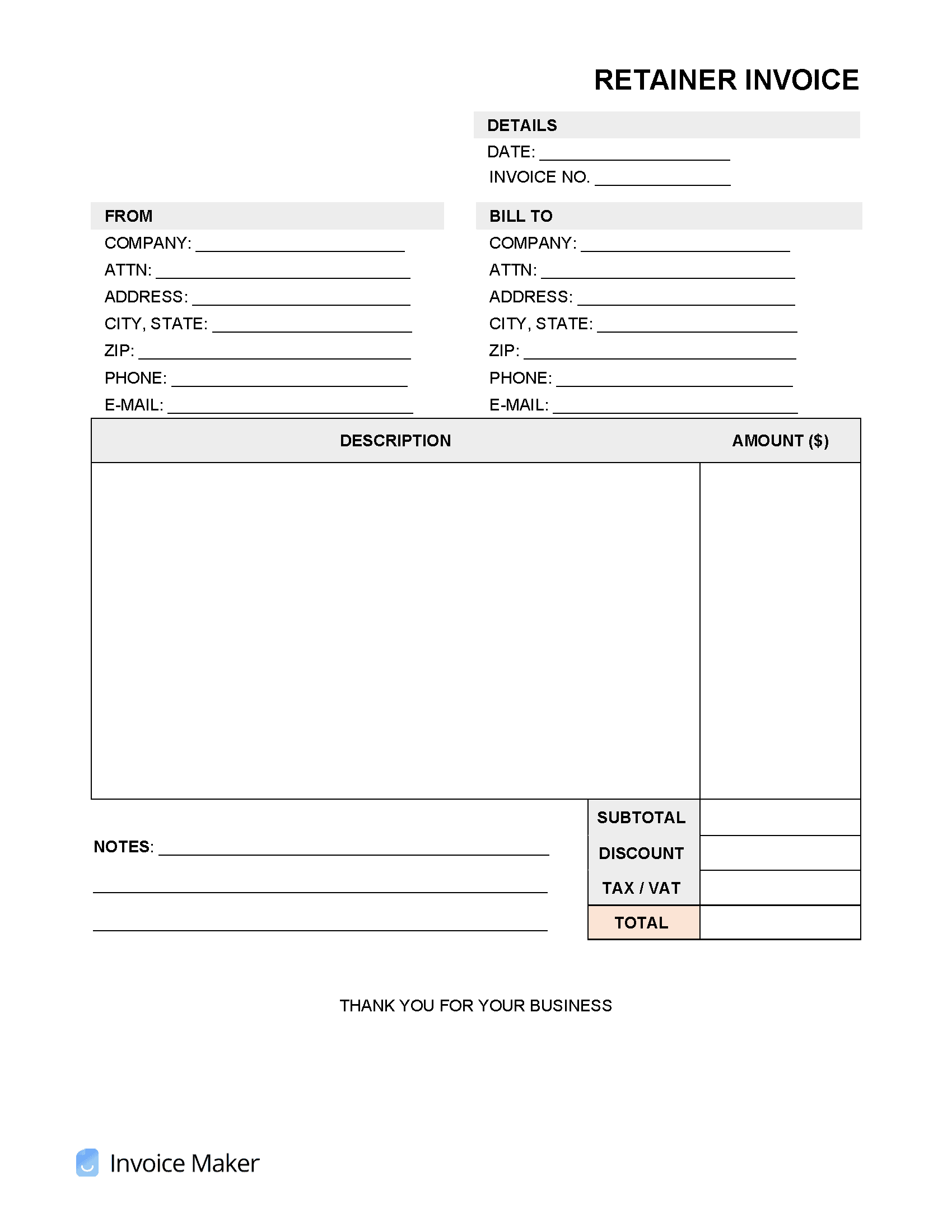Retainer Invoice Template
A retainer invoice is a bill sent from a lawyer to a potential client requesting payment for a retainer fee. The retainer invoice should be attached to a retainer agreement and it should be signed before the retainer payment is made.
What Does Retainer Mean?
A retainer is a deposit given (in advance) to a lawyer for their services. The lawyer will put the retainer (money) into an account and draw from it as the lawyer spends time working on the client’s file/case. However, a retainer doesn’t always implicate money. It simply implies that the client and the lawyer have come to an agreement, which is done by signing a retainer agreement, and thus protecting the client. Having clear terms in the agreement will limit confusion for the client. The client and attorney will know exactly what is to be expected, both in terms of representation and payment. A retainer agreement spells out the following:
- Details the limitations of the representation
- Explains the payment terms
- Communication of the parties
What is the Average Lawyer Retainer Fee?
A retainer fee can be zero down ($0) or it could be a deposit of a few thousand dollars, depending on the type of case. Personal injury lawyers who are paid pro bono won’t take a retainer fee upfront, but rather take a percentage of the money awarded to the client if the case is won.
- Average Retainer Fee: $1,000
- Average Retainer Fee Range: $1,000 – $10,000
How Long is a Lawyer Retainer Good for?
A retainer stays valid as long as the client is represented by their lawyer. Lawyers will keep drawing from the retainer until the account is empty, at which point the lawyer may ask for payment or another retainer to continue working. Details of a retainer are stated in the retainer agreement, therefore it’s best to refer to the agreement for this information. Normally, retainers are refundable if funds are left over after the completion of a case – again, whether or not it is refundable will be stated in the retainer agreement.
